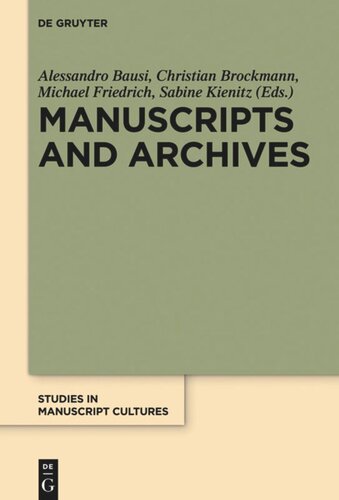

Most ebook files are in PDF format, so you can easily read them using various software such as Foxit Reader or directly on the Google Chrome browser.
Some ebook files are released by publishers in other formats such as .awz, .mobi, .epub, .fb2, etc. You may need to install specific software to read these formats on mobile/PC, such as Calibre.
Please read the tutorial at this link: https://ebookbell.com/faq
We offer FREE conversion to the popular formats you request; however, this may take some time. Therefore, right after payment, please email us, and we will try to provide the service as quickly as possible.
For some exceptional file formats or broken links (if any), please refrain from opening any disputes. Instead, email us first, and we will try to assist within a maximum of 6 hours.
EbookBell Team

4.8
74 reviewsArchives are considered to be collections of administrative, legal, commercial and other records or the actual place where they are located. They have become ubiquitous in the modern world, but emerged not much later than the invention of writing.
Following Foucault, who first used the word archive in a metaphorical sense as "the general system of the formation and transformation of statements" in his "Archaeology of Knowledge" (1969), postmodern theorists have tried to exploit the potential of this concept and initiated the "archival turn". In recent years, however, archives have attracted the attention of anthropologists and historians of different denominations regarding them as historical objects and "grounding" them again in real institutions.
The papers in this volume explore the complex topic of the archive in a historical, systematic and comparative context and view it in the broader context of manuscript cultures by addressing questions like how, by whom and for which purpose were archival records produced, and if they differ from literary manuscripts regarding materials, formats, and producers (scribes).